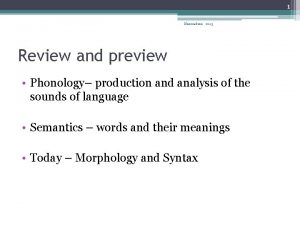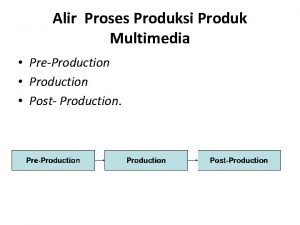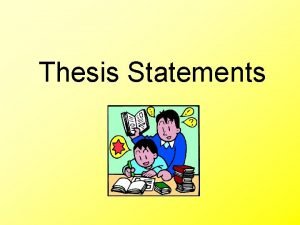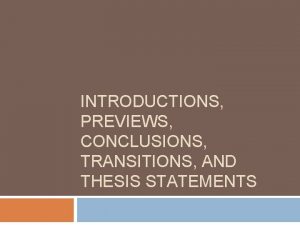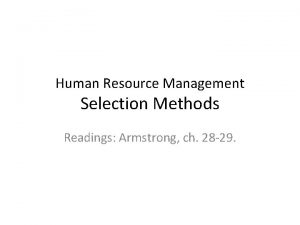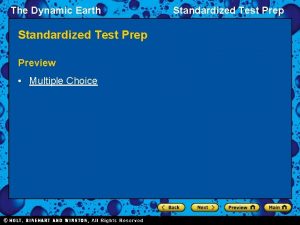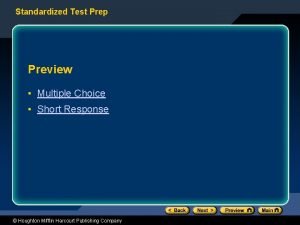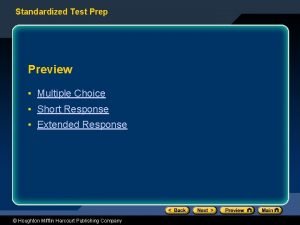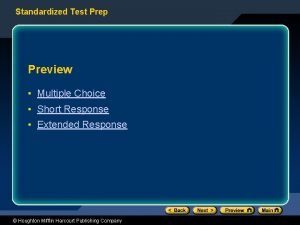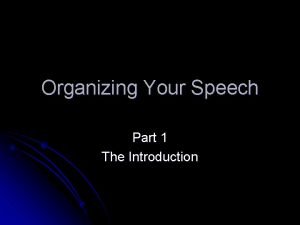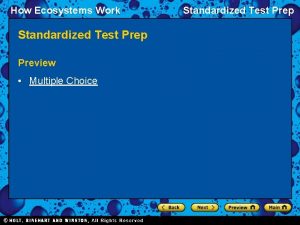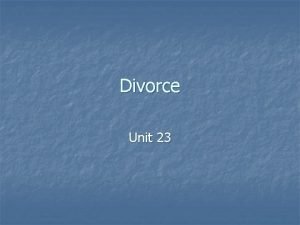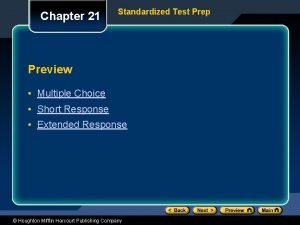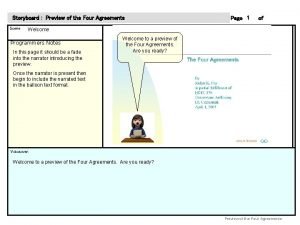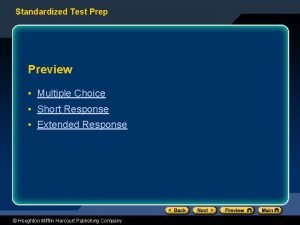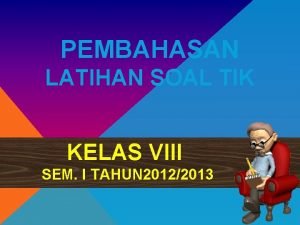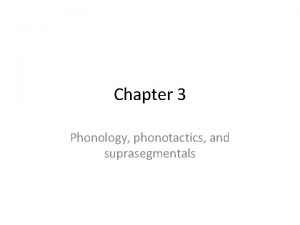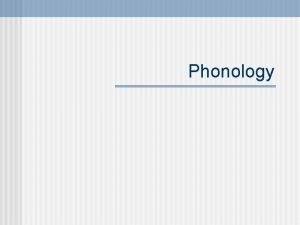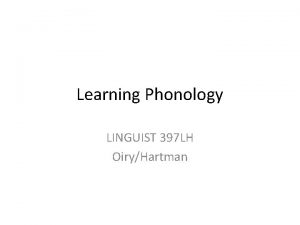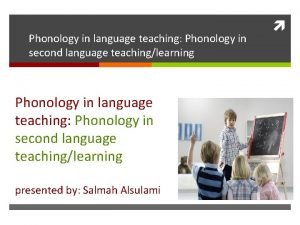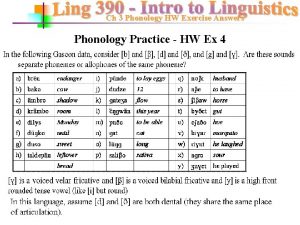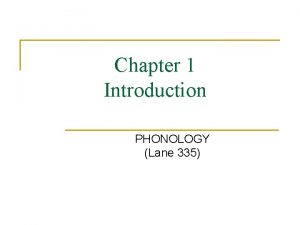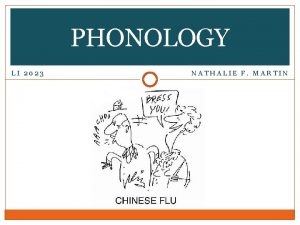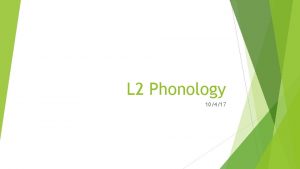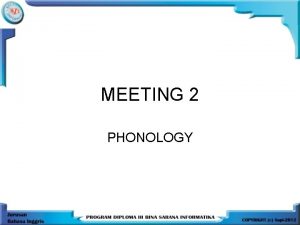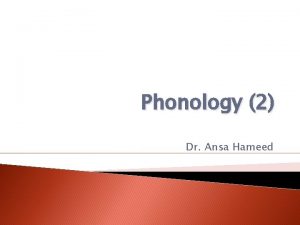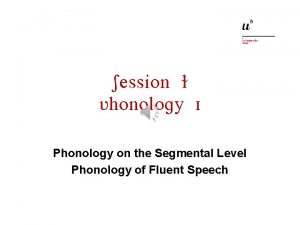1 Huennekens 2015 Review and preview Phonology production



















- Slides: 19

1 Huennekens 2015 Review and preview • Phonology– production and analysis of the sounds of language • Semantics – words and their meanings • Today – Morphology and Syntax

2 Morphological Development ECSE 500 Spring 2015 Huennekens 2015

3 Huennekens 2015 Morphology • In biology: the study of the form and structure of animals and plants • In linguistics: the study and description of how words are formed in a language

4 Huennekens 2015 Morphemes • The basic units of morphology - a minimal unit of meaning or grammatical function • Example: ▫ ▫ Words: talk, talks, talker, talked, talking Morphemes: talk, ~s, ~er, ~ed, ~ing Word: reopened Morphemes: re~, open, ~ed

5 Morphemes and Syllables Huennekens 2015 • Lady ▫ two syllables (la. dy) ▫ one morpheme • Disagreeable ▫ five syllables (dis. a. gree. a. ble), ▫ three morphemes (dis+agree+able)

6 Huennekens 2015 Free and Bound Morphemes • Free Morphemes can stand by themselves ▫ Examples? talk, open, tour, hunt, act • Bound Morphemes cannot stand alone, and are usually tied to another morpheme. ▫ Examples? ~s, ~er, ~ed, ~ing, re~, ~ate • All AFFIXES are bound morphemes!

Free and Bound Morphemes Huennekens 2015 • When a free morpheme has bound morphemes attached, we typically call it a stem. ▫ Word: teachers (teach –er-s) • Not all words have a free morpheme! ▫ Words: receive, reduce, repeat ▫ Morphemes: re~, ~ceive, ~duce, ~peat 7

8 What are the morphemes? What are the stems? Are they bound or free? Huennekens 2015 ▫ ▫ undignified restlessness disrespectful dishonesty ▫ farmers ▫ friendliness ▫ artistic

9 Huennekens 2015 FREE MORPHEMES • Two categories - lexical morphemes and functional morphemes ▫ ▫ Lexical Morphemes: words that carry content nouns (girl, man, house, tiger) adjectives (sad, long, yellow, sincere) verbs (look, follow, break, go) • Lexical morphemes are open class – we can create new ones easily!

10 Huennekens 2015 FREE MORPHEMES • Functional Morphemes – all other free morphemes • Examples: ▫ ▫ the, a, an (articles) at, in, on, above (prepositions) he, she, her, we, that, these (pronouns) nor, but, so (conjunctions) • Functional morphemes are closed class – we rarely (almost never) create new ones!

11 Huennekens 2015 BOUND MORPHEMES (derivational and inflectional) • Derivational Morphemes – ▫ When added to a stem, they almost always change the part of speech of the word ▫ Examples: ▫ good (adjective) + ~ness = goodness (noun) ▫ care (noun or verb) + ~less = careless (adjective) ▫ pay (verb) + ~ment = payment (noun)

12 Huennekens 2015 BOUND MORPHEMES (derivational and inflectional) • Inflectional Morphemes – show different grammatical forms of the same word • Nouns – (Plural ~s & Possessive ‘s) ▫ books, cats, teachers Jane’s, UCF’s, students’ • Verbs ▫ 3 rd person singular ~s - walks, works, visits ▫ Progressive ~ing – walking, working, visiting ▫ Past tense ~ed – walked, worked, visited

13 Huennekens 2015 BOUND MORPHEMES • Inflectional Morphemes – show different grammatical forms of the same word • Adjectives ▫ Comparative ~er - smaller, louder, prettier ▫ Superlative ~est - smallest, loudest, prettiest • In English, there are EIGHT inflectional morphemes.

14 BOUND MORPHEMES Huennekens 2015 • Find the 8 types of Inflectional Morphemes in the sentences below: • 1. Jim’s two sisters are really different. • 2. One likes to have fun and is always laughing. • 3. The other liked to read as a child and has always taken things seriously. • 4. One is the loudest person in the house and the other is quieter than a mouse.

15 Huennekens 2015 Review • The girl's mother slowly filled the bucket with water" ▫ 1 -sentence, it has 9 -words, and 13 -syllables, and it contains twelve morphemes. • "He meets the unhappiest boys" ▫ 1 -sentence, it has 5 -words, and 8 -syllables, and it contains nine morphemes.

16 Huennekens 2015 Overregularizations • Children will use regular morphology in places where the adult language requires irregular morphology. ▫ foots, comed, holded, and mouses,

17 Huennekens 2015 Overregularizations • "He putted the plate on the table. " ▫ A past tense morpheme has been added to the verb, but it's not supposed to be there. • "They have six childrens. “ ▫ The word "children" is already plural, but someone has added a needless plural suffix. • Think of more examples.

18 Huennekens 2015 Strategies … • Linguistic Scaffolding • Expansion • Language-rich environment ▫ Shared-reading ▫ Role-playing ▫ Plan-do-review

19 Huennekens 2015 What we know: • Morphological development occurs through adolescence. • Poor reading ability has been linked to weak morphological skills. • Morphology contributes to vocabulary, shortterm memory, reading ability, verbal and nonverbal intelligence, phonological awareness, and orthographic knowledge.
 Review and preview
Review and preview Alir produksi multimedia
Alir produksi multimedia Thesis statements examples
Thesis statements examples Thesis and preview statement example
Thesis and preview statement example What is a preview statement
What is a preview statement Classic trio' of selection techniques
Classic trio' of selection techniques Benefits of hr forecasting
Benefits of hr forecasting Test prep preview
Test prep preview Test prep preview
Test prep preview Test prep preview
Test prep preview Test prep preview
Test prep preview Sccm technical preview
Sccm technical preview Startling statement introduction examples
Startling statement introduction examples Test prep preview
Test prep preview Nnn preview
Nnn preview The selection preview
The selection preview Chapter 21 standardized test practice answers
Chapter 21 standardized test practice answers The four agreements preview
The four agreements preview Test prep preview
Test prep preview Line between pada perintah column digunakan untuk membuat
Line between pada perintah column digunakan untuk membuat
